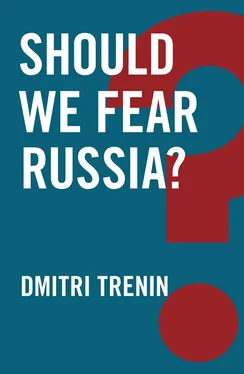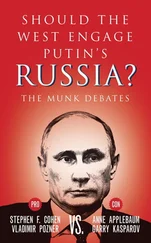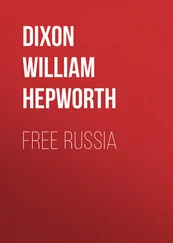Dmitri Trenin
SHOULD WE FEAR RUSSIA?
Since early 2014, barely a day passes when manifestations of Russia’s foreign policy assertiveness and military resurgence don’t make the headlines in the Western world. After Ukraine and Syria, it became absolutely clear: Russia has not only broken out of the post-Cold War order in its former Soviet neighborhood but challenged that order elsewhere. Two things stand out in Moscow’s recent actions: they caught a lot of people off guard, and they involved the use of force, sometimes in unorthodox ways. Thus, it is hardly surprising that the “Russia threat” is at the forefront of people’s minds. So, should Russia be feared?
The “we” in the title, of course, refers to the readers, wherever they live – in the United States, Europe, Asia, the Middle East, or elsewhere – who have become – or have always been, to various degrees – concerned about Russia. I was born in Moscow and live within a couple of miles from the Kremlin, the source of other people’s worries. And I pledge to you to give an honest answer to the question from inside the source of the perceived threat – no easy commission.
Many in Russia would scoff at the question, dismissing it as an example of Western paranoia, age-old Russophobia, a throwback to the Cold War, or a deliberate attempt at smearing Russia. Like most people anywhere, most ordinary Russians think of their country as essentially good, reasonably friendly, and essentially peace-loving – and, some will add, grossly misunderstood. Being able to look at one’s country from a distance is a rare and poisoned gift.
More sophisticated Russians would explain that the present-day Russian Federation has no intention of changing the world according to her preferences, unlike its immediate predecessor, the Soviet Union – or, some would not resist the temptation of saying, present-day America. Moscow, they would argue, is now guided by its interests rather than by ideologies. Russia is no real democracy, but it is part of the global capitalist economy and lives in a global information space. Its citizens are free to travel, and many have seen other parts of the world, where no one is perfect. Bottom line: demonizing anyone serves no useful purpose.
“Realists” would point out that Russia is a post-imperial polity, in transit to a nation-state, and a great power; that it has a set of security interests that others need to take account of, whether they agree with them or not. Annexing Crimea, in their view, was a defensive move against the post-Cold War expansion of the West, and its legitimacy lies not so much in the legality of the annexation as in the genuine will of the bulk of the Crimean population to join Russia. To this group, Russia is an underdog power fighting for its survival as a major independent geopolitical entity against the far superior forces of its competitors.
Neither set of arguments finds many takers outside of Russia’s borders. To a lot of its neighbors, Russia as a security problem still looms larger than life. Tsarist, communist or contemporary, it is still feared, and often hated. Those living in countries which are bigger, farther away and more self-confident face the uncomfortable reality of a Russia which is intensely feared by some of their partners and which itself actively challenges the order underpinned by their senior transatlantic ally, in whom they entrusted their security seven decades ago.
In the United States, of course, there is no deep fear of Russia, deemed by the elite consensus a has-been power, now in terminal decline. In raw power terms, Russia is a midget compared to the US. Crucially, the fact that Russia, despite its many flaws and failings, remains a nuclear weapons peer of the United States and, as in the Cold War, practices nuclear deterrence toward the US, does not appear particularly threatening to Americans. Primitive North Korean systems and the non-existent Iranian ones raise much more concern in this regard. Despite the return of confrontation and the talk of Moscow’s unpredictability, Russia is evidently considered a rational player, at least in the nuclear field.
Thoughtful Americans would instead point to the numerous vulnerabilities of present-day Russia: the economic, social, political and ideological underpinnings of the current Russian system are all very weak. They would recall that the country imploded twice in the twentieth century, with disastrous consequences for itself and powerful consequences, if very different each time, for others. Without a credible model of economic development and strong societal institutions, which are still absent, Russia may go down once again. If it does, implications for its neighbors will be severe and the impact on the rest of the world significant. Forget Russian strength, they would urge, watch out for its weakness!
Indeed, Russia’s insecurity is an issue. The current political system rests on the strong link between the leader, President Putin, and the bulk of the Russian people. Should that link be strained or severed, there is virtually no safety net. In 2015, the Kremlin’s chief political adviser said that, “as long as there [was] Putin, there [would be] Russia” – dubious laudation, if taken literally. Many of the moneyed elite are self-centered and self-indulgent. Much of the officialdom is using their positions for self-enrichment on the job. Russian society and polity has not yet concluded peace with itself: the “us” (common people) vs. “them” (elites) division runs deep. Russia’s conservatives, socialists and liberals are still dreaming of their own national hegemony and find little common ground, except, for most – after Crimea – in foreign policy.
Russia has not found peace with its near neighbors either. The Ukrainian conflict continues to smolder, Georgia is nervous, Poland and the Baltic States are openly hostile, and Turkey in November 2015 shot down a Russian warplane, causing a breakdown in the heretofore vibrant relations between the two. To the west, it faces a Europe where NATO has openly resumed its historical mission of containing Russia; to the east, it sees a China that has risen to the point when it has decided to begin economic expansion in Eurasia, as part of the “One Belt, One Road” project. To the south, Russia watches with growing concern the expansion of Islamist radicalism and extremism, which it had hoped to check by means of a military operation in Syria.
The hard fact in 2016 is that Russia’s relations with much of the rest of Europe are marked by mutual alienation, and its asymmetrical confrontation with the United States is both serious and dangerous. Partial convergence of Russian and Western interests in Syria cannot alter the fundamental clash of interests. Mutual hostility is palpable, and the chances of a direct collision between Russia and the United States are not negligible. The thick atmosphere of Russo-American rivalry, no matter how unequal, breeds even more mistrust, suspicion and fear. Even if the worst doesn’t come to the worst, the effect will be significant, and lasting.
The Russia–Europe rift is particularly damaging to Russia, newly estranged from Europe. It isn’t a welcome thing for Europe, either. For centuries, Russia was the “east of the West”, an extension of Europe all the way to the Pacific. After the end of the Cold War, a prospect arose of a “greater Europe” that would include Russia and would rest on a symbiosis of Russian resources and European technologies. What could happen, however, is a Russia as the “west of the East”, dominated by China and embracing much of Eurasia. This would shift the geopolitical axis of the Eurasian continent precisely as it is becoming increasingly more intertwined.
The problem with Russia is that it doesn’t fit neatly in one box. It is both strong and weak; authoritarian and lawless; traditionalist and valueless. Everything there may change overnight, and nothing will do so in two hundred years. No wonder that one can fear one’s own past fears, dreading their comeback. Russia’s imperial past and Stalin’s long shadow have never quite left its neighbors’ minds alone, even in the days of Russia dismantling its historical empire and shedding its worn communist clothes. Seen through these lenses, Putin looks just the last man in the long line going all the way back to Ivan the Terrible.
Читать дальше












